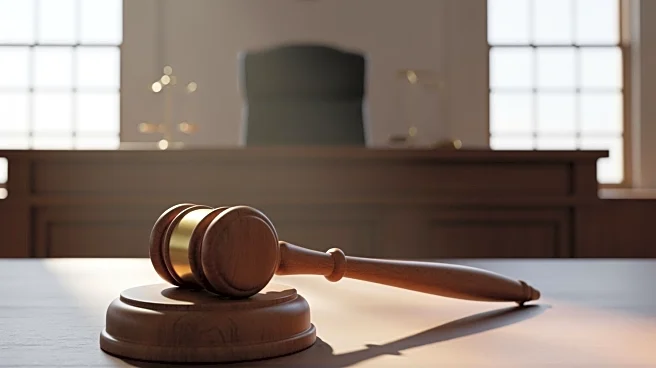What's Happening?
A federal judge has invalidated indictments against former FBI director James Comey and New York Attorney General Letitia James, which were pursued by President Trump. The indictments were secured by Lindsey
Halligan, an interim U.S. attorney appointed by Attorney General Pam Bondi after Erik S. Siebert was forced out. Judge Cameron McGowan Currie ruled that Halligan's appointment was improper, as it bypassed the Senate confirmation process. The charges against Comey and James were dismissed not due to the evidence or motives but because Halligan's appointment violated legal procedures. The ruling highlights the importance of lawful appointments in maintaining checks on executive power.
Why It's Important?
The invalidation of these indictments underscores the critical role of lawful appointments in the judicial process. It serves as a reminder of the checks and balances designed to prevent executive overreach. The decision may impact future attempts by the Justice Department to prosecute political figures, emphasizing the necessity of adhering to legal protocols. This ruling could influence how interim appointments are handled, potentially affecting the Justice Department's ability to pursue cases against political adversaries. It also raises questions about the executive branch's influence over legal proceedings and the importance of maintaining judicial independence.
What's Next?
The Justice Department may attempt to refile the cases against Comey and James, possibly by appointing Halligan under a different title, such as 'special attorney.' This could lead to further legal challenges and scrutiny over the appointment process. The ruling may prompt discussions on the limits of interim appointments and the necessity of Senate confirmation. Stakeholders, including political leaders and legal experts, may react to this decision, potentially influencing future legislative or judicial actions regarding appointment procedures.
Beyond the Headlines
This development highlights broader constitutional issues related to executive power and judicial oversight. It may lead to increased scrutiny of the appointment process for federal prosecutors and the potential for executive evasion of Senate confirmation. The ruling could also influence public perception of the Justice Department's impartiality and its role in political prosecutions. Additionally, it may affect ongoing debates about the balance of power between the executive and judicial branches.









